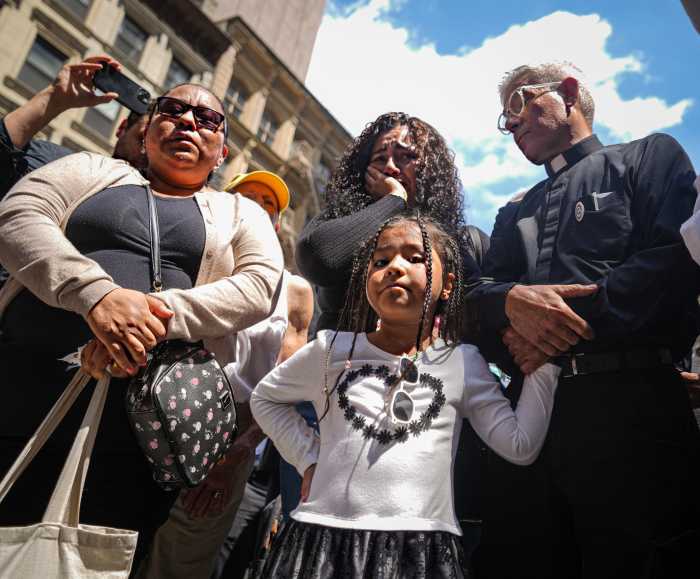With the discovery and dismantling of prostitution rings dominating the news in Queens this year, State Senator John Sabini has introduced legislation that would create new felony crimes to punish those who engage in so-called “human trafficking” as well as those who patronize illegal brothels.
The bill, S8485, also provides for assistance - including medical and mental health treatment, short- and long-term safe housing options, childcare, proper immigrant status and job training and placement - to the victims of the pay-for-sex industry.
“The victims of human trafficking are most often young women and children, forced into prostitution and drug use, subjected to violence and unspeakable acts in a foreign land far from their families,” Sabini said.
“It is essential that we increase the penalties for the perpetrators of these horrific crimes, but we must also consider that the victims of these crimes often have nowhere to go and no one to turn to once they have been rescued. It is incumbent upon us to help them as they try to rebuild their lives and regain their dignity.”
The new legislation, which was modified after receiving input from the City Bar Justice Center - an agency with experience working on high-profile human trafficking cases - follows other human trafficking bills that have passed the Assembly and Senate this year.
It comes on the heels of the August 16 bust of a multi-state prostitution ring that was uncovered in May 2005, when a Korean couple who owned and operated a chain of Korean brothels in Flushing attempted to bribe an undercover New York City Police Department (NYPD) detective to protect their businesses from being raided by law enforcement.
The 15-month investigation, conducted by the U.S. Immigration and Customs Enforcement (ICE) agency, included a court-authorized wiretap on the cell phone of Tae Hoon Kim, (a.k.a., “Tae Won”) of Flushing, the alleged middleman and transporter. It resulted in the arrest of 31 people and the closure of 20 brothels in six states. More than 70 suspected Korean sex slaves - none of whom were arrested - were discovered and questioned as to whether their stints in the brothels were a way to pay back their “employers” for the tens of thousands of dollars in transportation costs from Korea to the U.S.
The defendants have been charged with crimes including conspiracy to engage in human trafficking; conspiracy to engage in interstate transportation of women for the purpose of prostitution and interstate transportation of women for the purpose of prostitution, conspiracy to transport illegal aliens and transportation of illegal aliens; and conspiracy to operate an unlicensed money transmitting business.






























